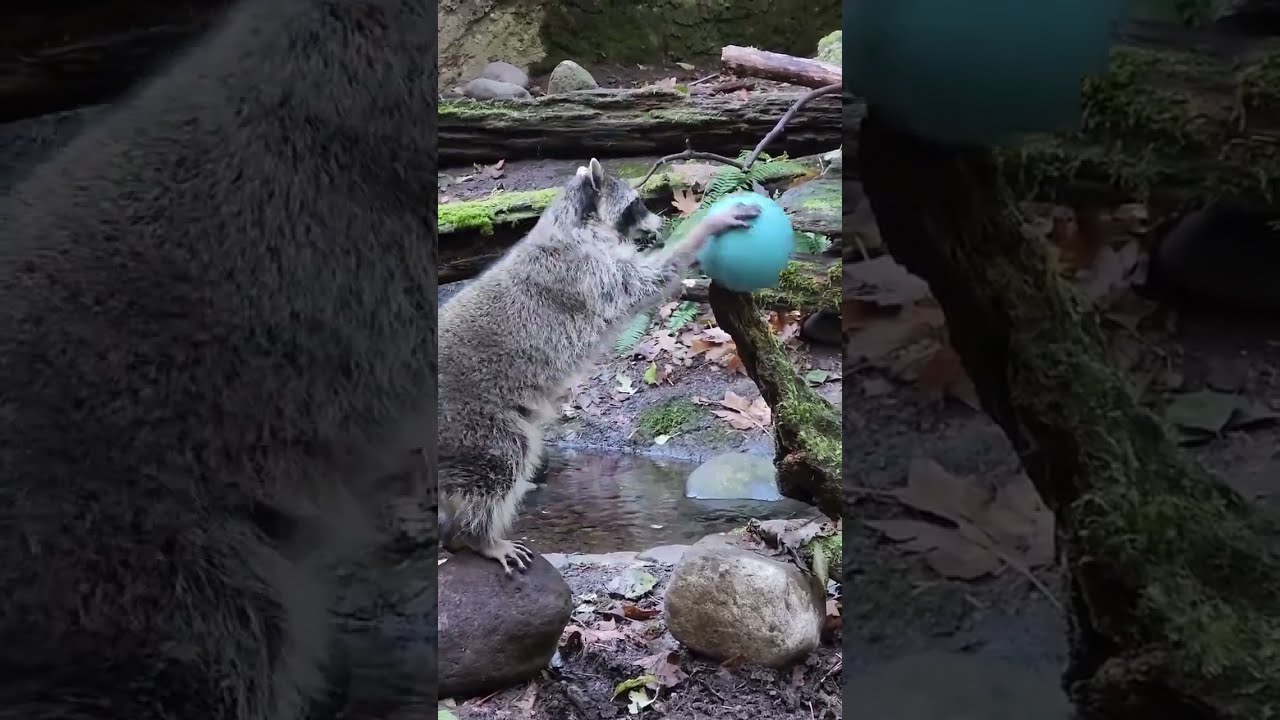– The importance of enrichment activities in animal care and their role in promoting natural behaviors.
– How puzzle feeders serve as an engaging enrichment tool for intelligent creatures like raccoons.
– The story of McChord the raccoon and his interactions with a puzzle feeder at Northwest Trek.
– The benefits of using dexterity-focused enrichment to maintain well-being in captive animals.
– A look into the daily life of a zookeeper tasked with providing high-quality and innovative care to animals.
Enrichment: It’s Not Just Play, It’s Essential
Have you ever felt trapped in a confined space with nothing to do but stare at the same walls daily? It can be pretty dull, right? Imagine how animals feel when stuck in a care facility without anything to challenge their minds or engage their senses. That’s why it’s so important to provide them with enrichment activities that tap into their innate behaviors and allow them to exercise their bodies and minds.
One animal that thrives on such enrichment tools is the raccoon, like McChord, who has become quite popular at Northwest Trek. These intelligent and dexterous creatures easily become bored without proper stimulation. That’s where the puzzle feeder comes in – a tool that’s as challenging as rewarding. But what makes this interactive device so important in animal care?
The puzzle feeder is specifically designed to appeal to the keen senses of a raccoon. It’s not just a random choice for McChord’s daily activities – it’s chosen to mirror the challenges these critters would encounter in their natural habitat. In the wild, raccoons forage for food, using their sensitive paws to dig, pull apart, and explore. The puzzle feeder mimics this scenario, encouraging McChord to use his ingenuity to find the tasty rewards hidden inside.
Keeper Becky, a dedicated staff member at Northwest Trek, is tasked with ensuring McChord’s well-being. She approaches her role with creativity and compassion, using various enrichment tools to keep him engaged and fulfilled. The puzzle feeder is a favorite for Becky and McChord because it taps into McChord’s cognitive prowess and allows him to earn rewards.
Studies have shown that intellectual stimulation through enrichment leads to improved mental health among captive animals. It can reduce stress-related behaviors and promote a richer, more fulfilling life. Like humans who feel rewarded after solving a complicated problem, animals, including raccoons, experience a similar sense of achievement.
Enrichment activities can strengthen the bond between animals and their keepers, breeding trust and familiarity. They also provide educational opportunities for visitors to witness the cognitive capabilities of animals firsthand, fostering a deeper appreciation for wildlife.
Overall, enrichment activities are an essential part of animal care, as they provide a balance between fun and necessity. By providing animals with activities that entertain and serve a purpose, caretakers can fortify their connection to their instincts and environment. The principles applied in animal enrichment strategies can even teach humans to continuously seek out activities that challenge us and make us feel fulfilled.
*****
Source Description
McChord, the raccoon, is encouraged to use his dexterous paws to get treats from a puzzle feeder. 🧩 Providing daily enrichment is a vital part of high-quality animal care at Northwest Trek. Enrichment encourages species-specific natural behaviors and abilities to exercise choice and control. 🦝
📹: Keeper Becky

